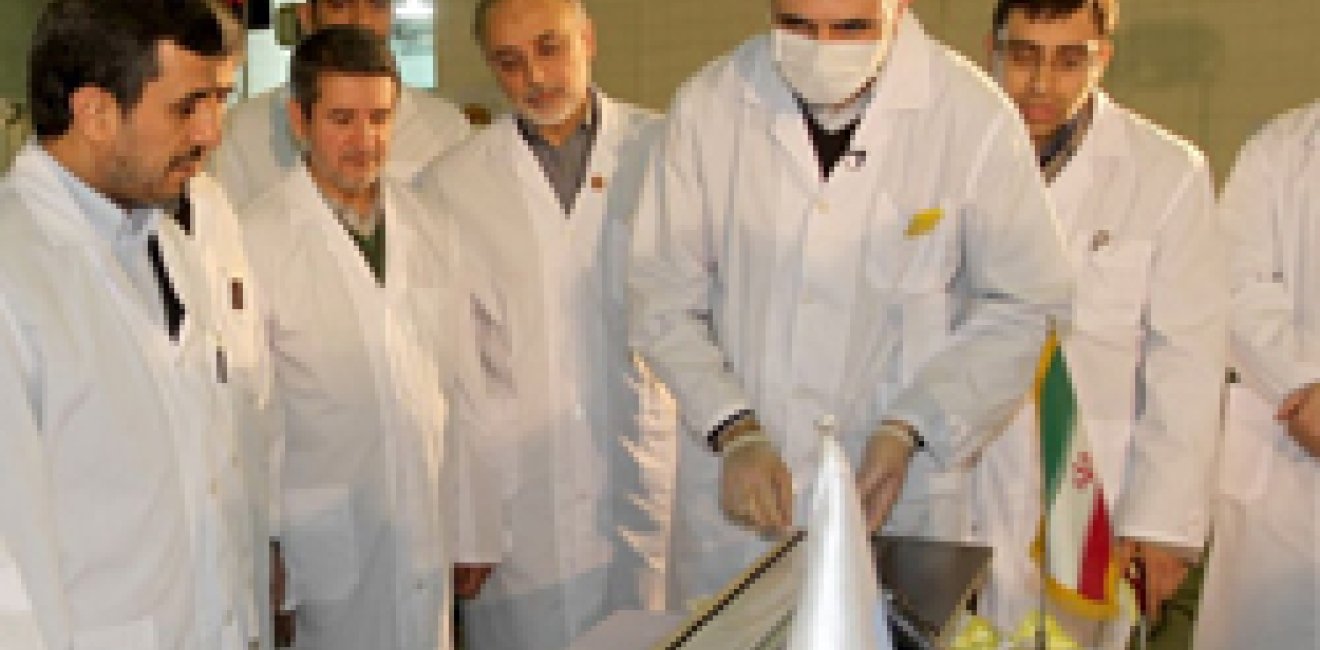Iran showed this week that it has a policy every bit as dual track as the one the United States is pursuing against it. In a dramatic gesture, Iran stepped away from warnings of military retaliation to offer talks on a nuclear program Washington fears could lead to the bomb for the Islamic Republic. It was a neat mirror image of the U.S. policy of applying pressure through sanctions while also trying to get Iran to the negotiating table. Both nations are balancing threats with offers of conciliation.
What was beginning to look like a rush to war now takes a step back. Further developments will be delicate. The U.S. and its allies’ reactions were reserved. U.S. Secretary of State Hillary Clinton said, “We must be assured that if we make a decision to go forward, we see a sustained effort by Iran to come to the table, to work until we have reached an outcome that has Iran coming back into compliance with their international obligations.”
The last round of talks ended precipitously in January last year in Istanbul when Iran imposed preconditions that blocked any deal-making. Now Iranian nuclear negotiator Saeed Jalili has sent a letter offering talks with the six world powers trying to make sure the Islamic Republic does not develop atomic weapons. It appears to meet two key U.S. demands–that there be no preconditions and that Iran’s nuclear program be open for discussion. The question is, does Iran mean business or is it merely trying to buy time against increasingly tough economic sanctions and a possible escalation towards war.
Iran had in January threatened to close the Strait of Hormuz, through which a third of the world’s sea-borne oil passes, in retaliation for U.S. sanctions being levied on its oil sales, and set to take effect in July. Tension has only increased with the European Union moving towards a July embargo of its own on purchases of Iranian crude. These measures could sharply reduce Iran’s oil revenues, the lifeblood of its economy. Meanwhile, the Brussels-based SWIFT system of bank transfer payments has said it is ready to sanction “Iranian financial institutions.” This would cripple Iran’s ability to do international banking.
In addition, there has been yet another assassination of an Iranian scientist in Tehran, the fourth since 2010, and apparently in response alleged Iranian attempts or actual attacks against Israeli diplomats in India, Georgia, and Thailand. It looked as if the long-running covert operations against Iran were ramping up into a not-so-covert mini-war.
The Iranian offer of talks puts a new complexion on all of this. European foreign policy representative Lady Cathy Ashton said at a press conference in Washington that she was now “cautious and optimistic at the same time.” The so-called P5 plus 1 of Britain, China, France, Germany, Russia, and the United States will be consulting over the next week about whether to take up the Iranian offer, but one diplomat said his money was on the meeting taking place. Others said it would take something shocking to scuttle the meeting.
A sign of this is that few see the fate of an eventual meeting as hinging on an upcoming UN nuclear inspection of Iran. Senior inspectors from the watchdog Vienna-based International Atomic Energy Agency are flying back to Tehran on Sunday after failing to make progress on a breakthrough visit earlier this month. For instance, they did not get access to the military testing site of Parchin, where non-nuclear explosives work is believed to have taken place related to research into how to make an atomic bomb.
Will this time be different? That is the tantalizing question the Iranian letter has raised.
The Iranians have not yet agreed to any of the key IAEA demands for the upcoming visit. These are to visit Parchin, to be able to interview the believed mastermind of the alleged Iranian nuclear weapons program, Mohsen Fakhrizadeh, and to get access to key documents concerning possibly military dimensions of Iran’s nuclear work.
The feeling seems to be that it would be nothing new if Iran stonewalls on the almost decade-long IAEA inquest, which has been blocked since August 2008. Negotiations on resolving the overall crisis are more important and the ambiguities in the Iranian letter are intriguing. It says that “talks for cooperation based on step-by-step principles and reciprocity on Iran’s nuclear issue could be commenced.” The United States has been open to a phased settlement but wants Iran first to suspend its uranium enrichment, the process that makes nuclear fuel for reactors but also the explosive core of atom bombs. Russia has proposed a different schedule, in which there would first be a freezing of Iranian enrichment and international sanctions at current levels and then a series of confidence-building steps. The problem is that further steps would include dismantling some sanctions, and the rapid timing of this is unacceptable to the United States. Washington wants sanctions to be lifted only after Iran has moved definitively to rein in its nuclear ambitions. This shows that there is a lot of room for misunderstandings that would quickly torpedo talks.
Will this time be different? That is the tantalizing question the Iranian letter has raised. The U.S. bet is that with the Iranian economy taking body hits and the military threat against Tehran perhaps looking more credible, Iran will want to cut a deal. But the two sides have been here before, with Iran offering negotiations that turned out to be no more than a confirmation of its nuclear work and a launching platform for further defiance.
One thing is sure. The stakes have never been higher, because the Iranian nuclear program has never been so advanced and the measures taken against it have never been so serious. It would be a good time to have serious talks.
This article originally appeared on the The Daily Beast.






